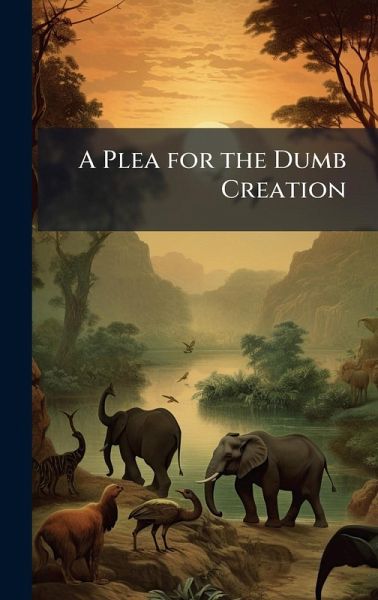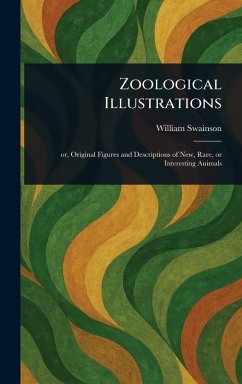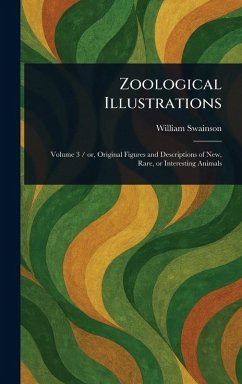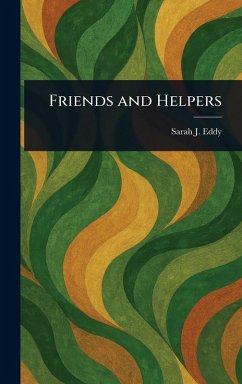
A Plea for the Dumb Creation
Versandkostenfrei!
Versandfertig in über 4 Wochen
30,99 €
inkl. MwSt.

PAYBACK Punkte
15 °P sammeln!
A Plea for the Dumb Creation offers a fascinating glimpse into Victorian attitudes towards animals and their treatment. This collection of selections from the "British Workman" and other periodicals presents a compelling case for the ethical treatment of animals, reflecting the burgeoning animal welfare movement of the 19th century. The articles within address various forms of animal cruelty prevalent at the time, from the abuse of working animals to the horrors of blood sports. Advocating for compassion and responsibility, "A Plea for the Dumb Creation" highlights the moral imperative to prot...
A Plea for the Dumb Creation offers a fascinating glimpse into Victorian attitudes towards animals and their treatment. This collection of selections from the "British Workman" and other periodicals presents a compelling case for the ethical treatment of animals, reflecting the burgeoning animal welfare movement of the 19th century. The articles within address various forms of animal cruelty prevalent at the time, from the abuse of working animals to the horrors of blood sports. Advocating for compassion and responsibility, "A Plea for the Dumb Creation" highlights the moral imperative to protect vulnerable creatures and encourages readers to reflect on their relationship with the animal kingdom. This volume provides valuable insight into the historical roots of animal rights advocacy and the evolving understanding of human-animal interactions. This work has been selected by scholars as being culturally important, and is part of the knowledge base of civilization as we know it. This work was reproduced from the original artifact, and remains as true to the original work as possible. Therefore, you will see the original copyright references, library stamps (as most of these works have been housed in our most important libraries around the world), and other notations in the work. This work is in the public domain in the United States of America, and possibly other nations. Within the United States, you may freely copy and distribute this work, as no entity (individual or corporate) has a copyright on the body of the work. As a reproduction of a historical artifact, this work may contain missing or blurred pages, poor pictures, errant marks, etc. Scholars believe, and we concur, that this work is important enough to be preserved, reproduced, and made generally available to the public. We appreciate your support of the preservation process, and thank you for being an important part of keeping this knowledge alive and relevant.







![The Wrongs of the Animal World. to Which Is Subjoined the Speech of Lord [T.] Erskine On the Same Subject Cover The Wrongs of the Animal World. to Which Is Subjoined the Speech of Lord [T.] Erskine On the Same Subject](https://bilder.buecher.de/produkte/74/74721/74721900n.jpg)




